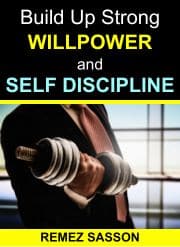
Nowadays, we are all working more than ever, with Australians, who now work remotely, working on average an extra 1.5 hours in unpaid overtime since leaving the office.
But it’s not just this group of remote workers that are affected. With 18% of Australians stating their responsibilities have increased in recent months and a further 22% reporting that their job-related stress is on the rise, there’s no denying that professional burnout is a very real issue in the current business landscape.
When left untreated, burnout can lead to a number of mental and even physical health detriments, with negative impacts that reach far beyond the realms of your workplace.
Fortunately, there are small steps you can start taking today to help yourself or those you love recover from burnout, and some of them are more practical than you might think.
There are many steps that workers themselves can take and that you can employ to help your colleagues, friends and family who may be in a tough spot.
Employers can also assist in the battle against burnout with timesheet apps that can save you time in your own workday while also ensuring that your employees get all the space for breaks that they may need.
Practical Tips Recover from Professional Burnout
Let’s take a look at some practical tips to help you recover from burnout without having to make any drastic changes to your life.
Acknowledge the Signs
Some of the early warning signs of burnout are things we overlook, especially in the workplace and usually in the name of productivity.
But if you’re burnt out, you’re no longer as productive as you can be. Perhaps things are taking you longer than they used to, or you find yourself procrastinating for no reason and having trouble focusing.
In that case, there’s a high chance you may be experiencing signs of burnout.
Not planning out your workday is a slippery slope to becoming overwhelmed, and if you’re thinking this doesn’t apply to you, it certainly wouldn’t hurt to check to see if you’re scheduling your time effectively.
Be sure to delegate when it makes sense, and don’t be afraid to share your experiences with management or colleagues.
If others feel the same, there’s a chance you all need to push for changes to improve processes and perhaps even the culture of your workplace.
If your colleagues are not the most forthcoming, it doesn’t necessarily mean it’s just you. It’s possible they don’t recognize the signs yet, or they’re too embarrassed to say.
You shouldn’t let their silence hold you back from speaking out yourself, simply because your health is just not worth staying silent.
If you’re feeling worn down and your cares have begun to fall by the wayside, don’t hesitate to say no to additional responsibilities and unreasonable expectations. Try to push for things to be scheduled in a way that suits you wherever possible.
Overcoming Perfection
If you’re feeling burnt out, it could very easily be because you’re trying too hard. Perfectionism (and its negative impacts) is often seen in high-achieving individuals.
Although many are quick to refer to perfectionism as a positive professional trait, modern reframing of this quality is seeing it for what it truly is: a stepping stone towards burnout.
Most of the time, our jobs require us to perform and complete tasks to a good standard, nothing more. This is why anything that’s taking you a lot of time and energy needs to be re-evaluated.
If you have dependents and other off-duty responsibilities, your dangers of overextending yourself naturally grow higher. That being said, even single working professionals can still contend with a host of barriers to productivity in their own personal lives.
For instance, do you ask for a similar level of support from your friends as you’re likely to give to them? Are you honest and open with the people in your life, or are you worried about ‘oversharing’? ‘
These are all signs that you’re aiming for perfectionism in areas of life where it isn’t necessary.
Instead of overthinking, you should instead feel confident focusing on what’s important to you, and creating kind and healthy habits to reset. And remember that you can’t do a good job without a little balance in your life.
Enjoy Life
Speaking of balance, contentment and joy play a big part in how we feel about life. For this reason, maintaining a work-life balance is necessary not only for ensuring your professional success, but also for your overall health and well-being.
Taking time to create a routine with your best interests at the center will allow you to recharge, regroup and return to work each day with a renewed sense of enthusiasm.
Similarly, making efforts to foster strong relationships with your colleagues can naturally make your workplace a warmer and cheerier place to be. It may be in your best interests to try to interact with your workmates here and there between working.
Remember that you’re a person before you’re a professional.
Your professional role doesn’t make up all that you are, just as it doesn’t make up who your colleagues are either. You may find that simply keeping this in mind can help take a lot of the stress out of just being at work as well.
Take the Right Steps to Recover from Professional Burnout
If we don’t address the cultural phenomenon that is burnout within our organizations and teams soon, we will likely continue to experience more and more people leaving their positions in droves, continuing the Great Resignation that has plagued industries across the globe.
If you, or someone you know, is suffering from professional burnout, be sure to follow the steps outlined above to begin the recovery process, helping them rediscover their passion for work and the joy in what they do.



